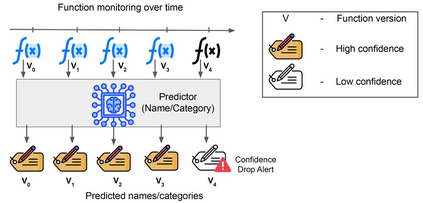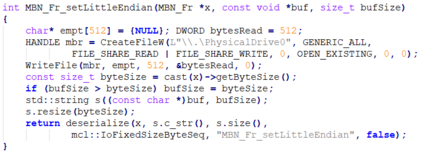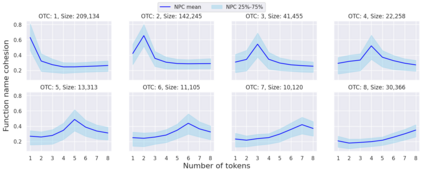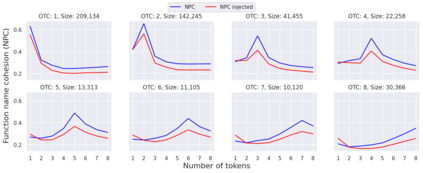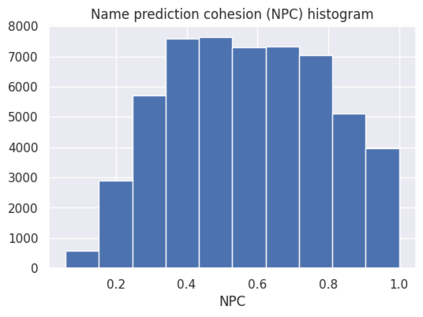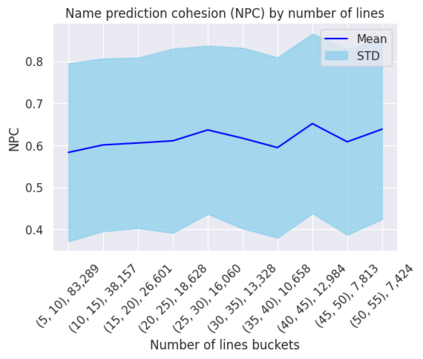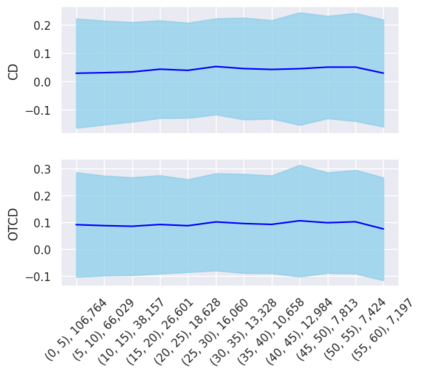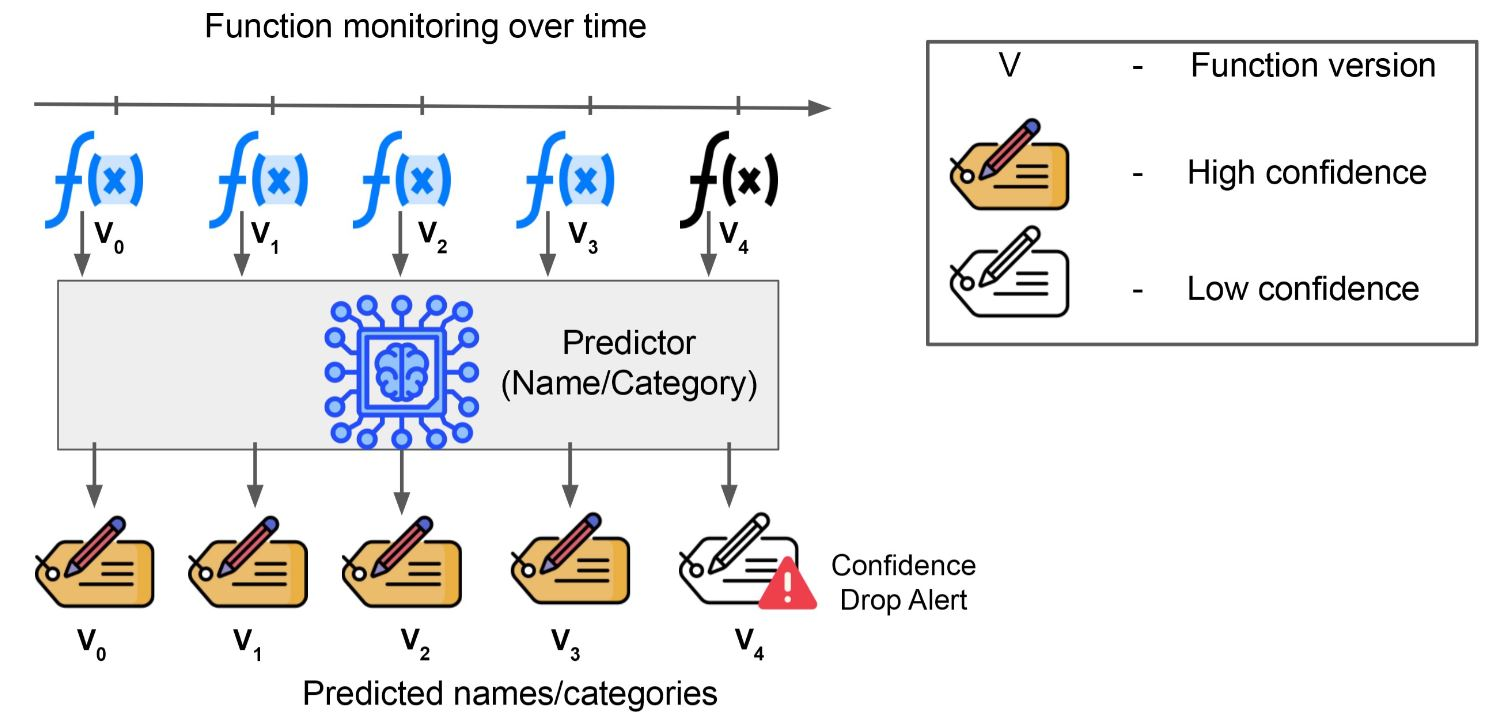Supply chain attacks significantly threaten software security with malicious code injections within legitimate projects. Such attacks are very rare but may have a devastating impact. Detecting spurious code injections using automated tools is further complicated as it often requires deciphering the intention of both the inserted code and its context. In this study, we propose an unsupervised approach for highlighting spurious code injections by quantifying cohesion disruptions in the source code. Using a name-prediction-based cohesion (NPC) metric, we analyze how function cohesion changes when malicious code is introduced compared to natural cohesion fluctuations. An analysis of 54,707 functions over 369 open-source C++ repositories reveals that code injection reduces cohesion and shifts naming patterns toward shorter, less descriptive names compared to genuine function updates. Considering the sporadic nature of real supply-chain attacks, we evaluate the proposed method with extreme test-set imbalance and show that monitoring high-cohesion functions with NPC can effectively detect functions with injected code, achieving a Precision@100 of 36.41% at a 1:1,000 ratio and 12.47% at 1:10,000. These results suggest that automated cohesion measurements, in general, and name-prediction-based cohesion, in particular, may help identify supply chain attacks, improving source code integrity.
翻译:暂无翻译

